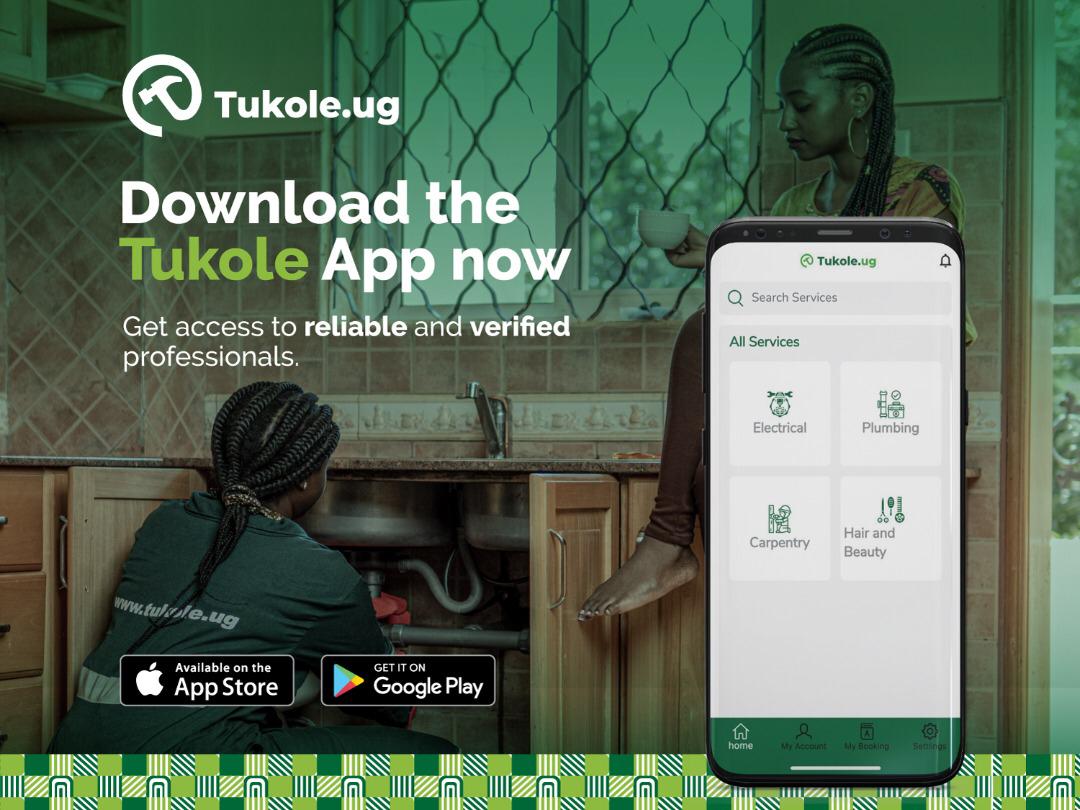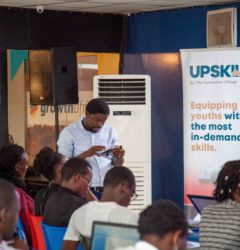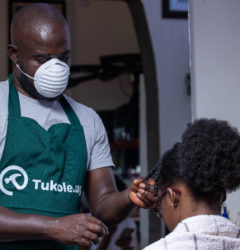04 Aug

Despite the increasing number of students that enroll for higher education in Uganda, the challenge of unemployment has still persisted. For example, enrolment for education attainment at tertiary level is estimated to be about 259,000 (Male 56%; Female 44%) students of whom 72% are enrolled in different Universities (UBOS, 2018). Reports by the Ministry of Gender, Labor and Social Development indicate that about 40,000 youth are released annually into the job market to compete for the available limited number of job opportunities that usually do not exceed 9,000. In response to the high level of unemployment, the government of Uganda came up with legal and policy measurements. These include; National Employment Policy for Uganda (2011); Skilling Uganda Strategic Plan 2012- 2022, National Youth Policy (2001), National Youth Council, Gender in Education Policy (2010), that provide a framework for youth engagement and participation.
The Ministry of Education and Sports emphasizes creation of employable skills and competencies relevant to the labor market rather than educational certificates as was before. Some of the initiatives put in place to produce a market relevant skilled labor force include the Business Technical Vocational Education and Training (BTVET). BTVET has tried to address the technical skills gap in Uganda for the school completed students, school dropouts and unemployed youths, though a remarkable decline in enrollment for technical training has been realized. For example, it was reported that BTVET enrolment reduced drastically from 63,209 (Male 36,960; Female 26,249) in 2016 to 45,153 (Male 29,102; Female 16,051) in 2017 (UBOS, 2018). The decline in enrollment for practical courses meant that more young women and men were losing out on employment. Reports published in 2017 indicated that persons between the age of 14-64 that were in employment were only (Male 5,047.3; Female 4,023.2) and employment to population ratio were (Male 56.3%; Female 39.7%) (UNHS 2016/17).
To contribute to the Government’s efforts to reduce the unemployment gap in Uganda, The Innovation Village came up with an initiative of an online platform for networking between employers and employees called “Tukole” locally translated as “let’s work”. This enables young technicians to be connected to work opportunities anywhere in the country. Scaling this platform has been made possible with support from the Mastercard Foundation under their Young Africa Works strategy that seeks to see 3 million young women and men in Uganda in dignified and fulfilling work by 2030.
Tukole is Uganda’s connected marketplace for verified, reliable domestic and commercial professionals for blue-collar (manual labour) and informal services. The “Tukole” platform bridges the gap between individuals and companies sourcing for artisans, vocational, technically skilled and talented young women and men searching for job opportunities in the labor market. These talented young women and men are equipped with software skills to ease market search for job opportunities while improving the way they profile and price their services through efficient digital platforms (Tukole App). The ultimate goal of connecting workers or service providers and employers or service users on “Tukole” platform is to create trust and buy-in for blue collar services online subsequently increasing employment opportunities for the skilled young women and men. In addition, the young professionals are empowered on how to value their competencies, and how to make monetary negotiations for different tasks at a fair price commensurate to work.
Individuals of any professional background interested in joining the platform make applications and applications are taken through a systematic technical competence assessment taking note of their field of specialty. The young women and men that are selected to join the platform are taken through some compulsory course units which include; customer service and care; conflict resolution and team work; investment and savings; quality assurance; oral and written communication skills; safety and health; negotiation and pricing; reporting; preparation for interviews; building a resolution; work planning and setting realistic goals; mechanization for work efficiency; financial planning and bookkeeping in addition to selected course units based on need. Since its inception, 38 (Male 33; Female 5) young men and women have joined the “Tukole” platform of whom 21 (Male 17; Female 4) were successfully oriented. Of the 21 that were oriented, 10 ((Male 7; Female 3) were linked and got employment as indicated in these voices; In the last 9 months, 900 task men have been profiled, 100 of these will now be added to the platform monthly in introducing 3 new categories hairdressing, janitors and tailors in August.
“The Tukole Lead, Phyllis contacted me when searching for someone who could mount a TV Screen on the wall. In July other technicians and I were invited for a meeting where we were told about the platform of Tukole, as an application and how we could use it to findour work. We were taught how to handle negotiations with clients and about the terms of Tukole. What I like about Tukole is the fact that you no longer have to walk, door to door looking for work on building sites.
You could simply be at home without work and a client contacts you for a job. The terms and conditions are negotiated at the site before the start of work. It is a relief to know the terms and conditions right from the start, so no one gives you work that they are not ready to pay for” (George N. Electrical Technician).
“A team of guys from Tukole came to Nakawa and told us that they could get us jobs or connect us to job opportunities if we joined the platform. I saw the ability in them so I joined. After registering us, they called us for assessments and interviews, they wanted to find out what we could do best. I personally told them that I could do finishing (plastering and painting), conduct safety measures at the workplace, building walls and partitioning. I went through five assessments in total and some training. After that Tukole connected me to a job where I do masonry at MoTIV in Bugolobi. This entails, building blocks, partitioned walls, marble work among others. Through the training I learned so many things, like how you can negotiate with a client and discuss payments and time. Previously, I would ‘ve gone to site and left without getting work, but since then, I have gotten contracts which wasn’t the case before, I learned how to express myself” (Faith N. Civil Technician).
Besides getting the job done, employers/customers also benefit from the good communication from the workers who take time to explain about the problem and possible ways of preventing it reoccurring. In order to realize the desired goal and create a dynamic ecosystem, “Tukole” partners with various institutions including Nakawa Vocational Institute, Uganda Young Plumbers Association and Uganda Small Scale Industries Association through which they source for service providers. The first trained service providers have largely been taken on by MoTIV and Aponye Uganda Limited. With such serious efforts directed towards addressing the education/market relevant orientation that is conducted at “Tukole”, moving forward, service provision by technical professionals will continue to be refined, bringing satisfaction to workers and employers and hence closing the skill and unemployment gap.










Recent Comments